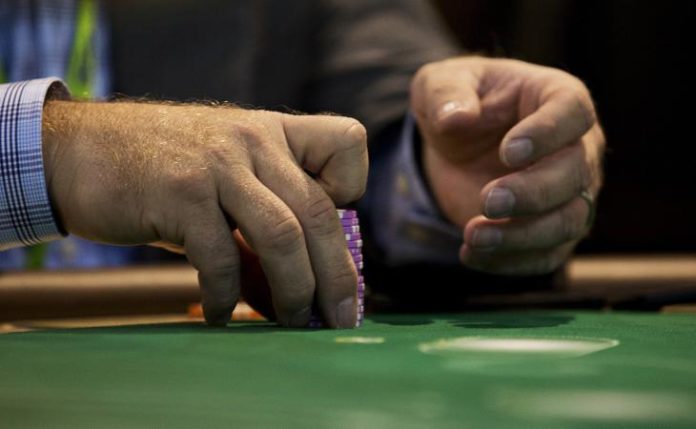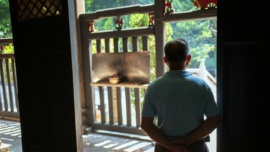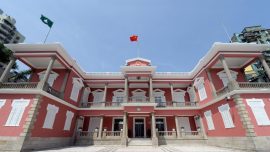
António Lobo Vilela is a lawyer based in Macau and the author of the Macau Gaming Law Book
The Macau Legislative Assembly has recently voted on the admission of a draft law proposal to combat illegal gambling. According to the proposal’s Statement of Reasons, the Macau government believes the draft law will create a “legal regime of excellence to investigate and combat the various criminal acts related to illegal gambling.”
In essence, the draft law proposal is a mere rejig of the current Law No. 8/96/M of July 22, 1996, on illegal gambling (which in turn had rejigged Law No. 9/77/M of August 27, 1977, on the same subject) and the repeal of Law No. 9/96/M of July 22, 1996, on criminal offences related to animal racing. Nevertheless, it adds a vast number of criminal procedural precepts that, it is hoped, can help better respond to the needs of combating gambling-related crimes that it provides.
The draft law proposal is also used to include in the amendment it makes to the Code of Criminal Procedure (on the time limits for pre-trial detention) the crimes of Treason, Secession, and Subversion provided for in the Law on Safeguarding National Security (of China, where Gambling is against public policy), which have nothing to do with it.
As far as criminal types are concerned, which is the very essence of criminal law, the proposal merely creates the crime of illegal online exploitation of games of chance or mutual betting and does not transpose (partially) the crime of illicit gambling exploitation in authorised venues or the crimes explicitly related to animal racing. For the criminal types it retains, it grafts mutual betting onto some, re-words others (not always for the better), and increases the existing penalties in almost all cases.
A notable absence from the draft law proposal is the crime of illicit gambling exploitation in authorised venues (introduced into Macau’s criminal legal system by Article 7 of Law No. 8/96/M, of July 22, 1996) in the section related to the exploitation of games of chance or any betting that does not comply with the respective rules of execution.
Punished with imprisonment for up to 3 years or a fine, this crime is the only one that gaming concessionaires (of games of chance, mutual betting, and operations offered to the public) can commit and serves as a sword of Damocles hanging over their heads. The need to prevent this type of conduct is acknowledged in the 2022 amendment to the Gaming Law when failure to comply with the rules of execution for the practice of games of chance (approved and published in the Official Gazette) is labelled a very serious administrative offence, punishable by a fine of between 2 and 5 million patacas.
Gambling regulation is a complex process that involves a delicate balance between economic considerations, public health, social impact, and ethical concerns. It requires a comprehensive approach that addresses the unique characteristics of gambling as an industry and its potential effects on individuals and communities. It is distinct from typical economic regulation, presenting unique challenges and considerations, as it involves elements of risk and chance that can have significant social and moral implications.
Historically, gambling has been illegal and enforced by criminal laws. The regulatory response can differ once the government changes its historical policy and allows licenced gambling. Government protection and player protection are the two central public policies toward regulated gambling. With the possible exception of South Korea, whose gambling regulation aims to protect the player, all other gambling regulations reconcile these general policies.
Indeed, governments regulate gambling, on the one hand, to protect their interests in the gaming industry, create jobs, promote tourism, revitalise urban areas, stimulate economic growth, generate new taxes, etc. On the other hand, to minimise problem gambling and promote responsible gambling by addressing concerns related to addiction, social harm, and the potential for exploitation of vulnerable individuals.
Gambling regulation is also aimed at preventing fraud, guaranteeing the integrity of games, securing players’ privacy, and protecting people from the adverse effects of an activity that is inherently designed to put the player at an economic disadvantage. This warrants fair gaming, transparency, and responsible business practices.
To ensure effective regulation, it is crucial to align it with government goals, which cannot fail to include maintaining the public’s perception that games are fair and honest and that players’ deposits, payments, and winnings are safe and secure. The Macau Gaming Law upholds this principle by stating amongst its objectives the exploitation and operation of casino games of chance fairly and honestly.
Decriminalising illegal gambling exploitation by the concessionaires could send out the wrong signal. Any change, however small, to the rules of execution of the games (approved and published) directly influences the odds, making them more favourable to the concessionaire (who changes them) and, consequently, worse for the players. Criminal law serves not only to repress unlawful behaviour but to prevent its occurrence. Although whether a particular conduct should be (or no longer be) subject to a specific criminal type is a legislative policy choice, there seems to be no reason for the decriminalisation in question, which represents a step backwards and an attitude out of step with the importance that Macau’s gambling sector has and deserves.
Sometimes, it is key to get back to basics!
























